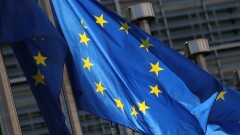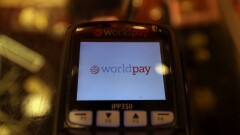FIS has agreed to a $43 billion deal to acquire Worldpay, the largest deal yet in an environment of rampant fintech consolidation and investments.
Given the size of the deal — which includes about $9 billion of Worldpay’s debt on top of a $34 billion bid — the pressure’s on to build a global powerhouse that can counter other major fintech mergers announced in the past weeks. FIS must also emerge as a nimble rival to the startups that threaten the old order.










